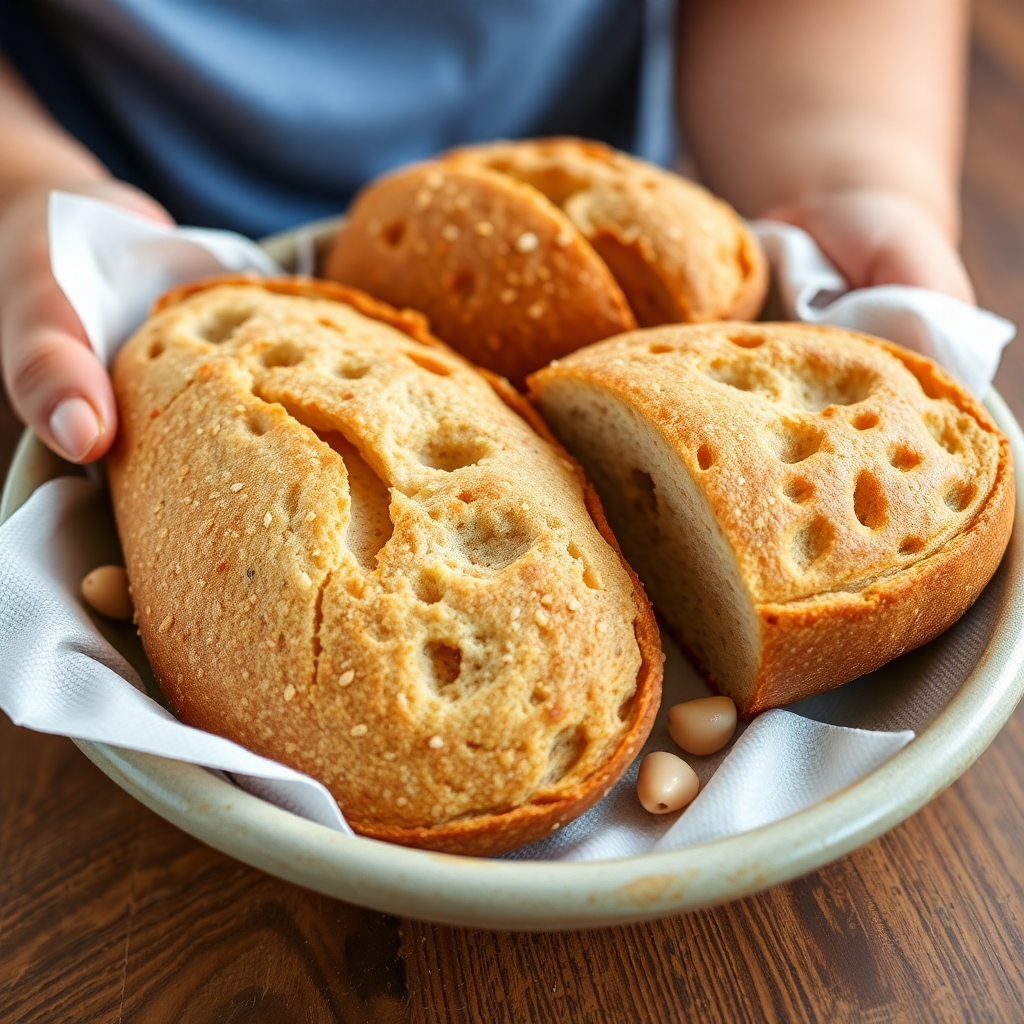What is the significance of the phrase "Our Daily Bread" in the Bible and how does it relate to themes of provision, trust, and reliance on God?
The use of “daily” emphasizes the notion that our reliance on God is not merely a one-time request but a continuous need—a reflection of the Israelites' experience in the wilderness, where they were provided manna daily (Exodus 16:4).
The phrase “Our Daily Bread” is one of the most recognized expressions in Christian scripture, originating from the Lord’s Prayer in the Gospel of Matthew. It embodies profound themes related to provision, trust, and reliance on God—concepts that are essential to the faith journey of believers. This blog post will explore the multifaceted significance of this phrase, how it connects to biblical narratives, and its relevance in our daily lives.
The Biblical Context of "Our Daily Bread"
To fully grasp the significance of “Our Daily Bread,” we must first examine its context within the Lord's Prayer. In Matthew 6:11, Jesus instructs his followers to pray, “Give us this day our daily bread.” This prayer encapsulates a deep yearning for sustenance, conveying our human dependence on God for our physical needs.
The use of “daily” emphasizes the notion that our reliance on God is not merely a one-time request but a continuous need—a reflection of the Israelites' experience in the wilderness, where they were provided manna daily (Exodus 16:4). This key moment in Israel’s history highlights God’s provision and care, teaching that our needs are met in His perfect timing and manner.

Themes of Provision
The concept of provision is at the heart of the phrase “Our Daily Bread.” It serves as a reminder that God is not only aware of our needs but actively supplies for them. In Philippians 4:19, Paul reinforces this truth, stating, “And my God will supply every need of yours according to his riches in glory in Christ Jesus.” This assurance reassures believers that God sees our struggles and responds to them.
The idea of “daily bread” encompasses much more than mere physical nourishment; it represents a holistic approach to God’s provision, including emotional, spiritual, and relational needs. By acknowledging our need for daily sustenance, we cultivate a posture of gratitude and recognition of God as our ultimate provider.
Trust in God’s Provision
The phrase also invites us to reflect on our trust in God. Trusting God for our daily bread means letting go of anxiety about tomorrow and having faith that He will provide what we need when we need it. In Matthew 6:25-34, Jesus encourages His followers not to worry about their lives, emphasizing how God cares for the birds of the air and lilies of the field.
When we petition for our daily bread, we’re acknowledging our limitations and God’s infinite capacity to care for us. This trust builds a deeper relationship with Him, allowing us to experience His faithfulness in tangible ways. The act of asking God for our needs serves as a spiritual discipline that fosters reliance on Him, guiding us to live in the moment while recognizing His constant presence and provision.
Reliance on God
The phrase “Our Daily Bread” invites believers to cultivate reliance on God. In a world where self-sufficiency is often celebrated, the act of depending on God for our needs can be countercultural. God desires an intimate relationship with His creation, and when we rely on Him, we affirm that our strength and resources come from Him alone.
In John 15:5, Jesus teaches, “I am the vine; you are the branches. Whoever abides in me and I in them bears much fruit, for apart from me you can do nothing.” This reliance on God encourages confidence in His ability to sustain us, equipping us to face life’s uncertainties with hope and assurance.
Spiritual Nourishment Beyond Physical Needs
While the phrase “Our Daily Bread” certainly includes physical sustenance, it transcends mere hunger. In John 6, Jesus refers to Himself as the “Bread of Life,” indicating that true sustenance comes from a spiritual relationship with Him. He says, “I am the bread that came down from heaven” (John 6:41), emphasizing that the ultimate nourishment we seek cannot be fulfilled by physical means alone.
This spiritual interpretation encourages believers not only to seek God for their daily needs but to engage in a continuous pursuit of His presence and Word. The Bible itself is often described as food for the soul (Matthew 4:4), and in seeking our “daily bread,” we are invited to also hunger for a deeper connection with God and His Word.
Implications for Our Daily Lives
The implications of the phrase “Our Daily Bread” reach into our everyday lives. It challenges us to cultivate a spirit of gratitude, recognizing and appreciating the daily blessings we receive. By acknowledging God’s provision, we are reminded to share with others as well. Acts of generosity and compassion reflect our understanding that we are part of a broader community reliant on God’s grace. The call to “give us this day our daily bread” extends beyond our personal needs, inviting us to advocate for those struggling with hunger, poverty, and other hardships. This reinforces the biblical teaching that we are to love our neighbors and serve those in need.
Conclusion
The phrase “Our Daily Bread” holds profound significance within the Bible, serving as a powerful reminder of God’s continuous provision, our call to trust in Him, and the importance of reliance on His grace. This simple yet impactful expression encourages believers to seek not just physical sustenance but to grow in their relationship with God, who desires to meet our every need.
As we incorporate this phrase into our prayers and daily practices, we can cultivate gratitude, awareness, and a deeper understanding of how we can embody God's provision and love in the world around us. Let “Our Daily Bread” be a guiding mantra in our lives, reminding us to rely on God daily for all that we need, both seen and unseen.